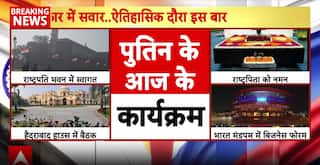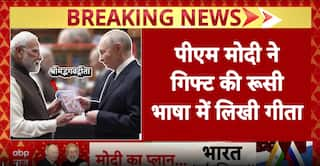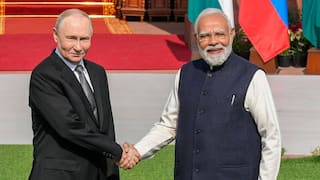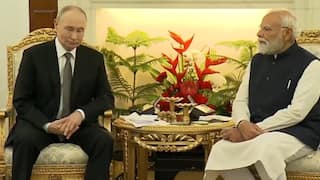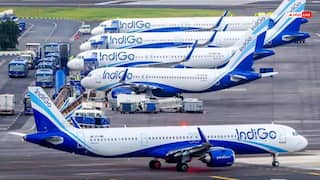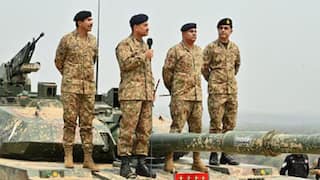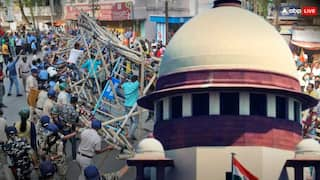With Mahathir Now Gone, India Has Upped Strategic Partnership With Malaysia

In a span of just four days, India and Malaysia made monumental efforts to bring back the bilateral relationship on track, which remained derailed for the past four years ever since New Delhi scrapped Article 370 and 35A in Jammu and Kashmir in 2019. From slamming Malaysia for its comments on Kashmir during the Mahathir era, to discussing enhancement in strategic ties after his exit, New Delhi and Kuala Lumpur earlier this week sought to remove the blemish that has deeply strained the relationship.
Ties between India and Malaysia began entering a difficult phase in 2018 when then India-based radical Islam preacher Zakir Naik sought asylum in Malaysia despite severe objections from the Narendra Modi government. Naik is on India’s ‘Most Wanted’ list over charges of spreading hate through his speeches and money laundering. He fled India in 2016 in the aftermath of the Dhaka café blast. Malaysia was the only country to give him shelter and permanent residency after his asylum pleas were turned down by Britain and Canada.
Thus, despite the initial bonhomie between Prime Minister Narendra Modi and the then PM of Malaysia, Mahathir Mohamad, ties between both countries started getting tensed. However, matters came to a point where India began to slam Malaysia with strongly worded statements after Kuala Lumpur under Mahathir Mohamad called out India on the issue of Kashmir and the Citizenship Amendment Act (CAA).
All hell broke loose when Mahathir claimed that India had “invaded and occupied” Kashmir by abrogating the two articles from the Indian Constitution that gave special powers to J&K. After lodging an official protest, India reciprocated by banning palm oil imports from Malaysia, leading to a trade war of sorts when the latter also threatened to stop some of India’s export into that country. Not only that, Malaysia even warned India on imposing stricter regulations on Indians working in that country.
However, with an ageing Mahathir now firmly on his way out of Malaysian politics, India has decided that it is time New Delhi take the bilateral ties to a higher level even as it ups the ante within the Southeast Asian countries keeping in mind the “ASEAN centrality” of the Indo-Pacific strategic construct, pushed by the US under President Joe Biden.
Besides, due to the strain in the ties for the past four-five years, India has not been able to make much progress with Malaysia in areas such as counterterrorism and transnational crime, areas that are being accorded high priority under the present Indian government. A joint working group to combat terrorism was established between both countries in 2010 while a joint committee on security matters was set up in 2012. Both these bodies have been rendered irrelevant of late due to the growing tensions.
Under Prime Minister Anwar Ibrahim, who came to power in Malaysia in November 2022, New Delhi and Kuala Lumpur had been trying to bury the hatchet and make progress in several key areas as the war between Russia and Ukraine continues to economically impact both countries disrupting global supply chains and trade linkages. His coming into power after having a fallout with Mahathir, came as a relief to India.
PM Modi was one of the first world leaders to congratulate him, vowing to “working closely together”, and to “further strengthen India-Malaysia Enhanced Strategic Partnership".
Congratulations Dato' Seri @anwaribrahim on your election as the Prime Minister of Malaysia. I look forward to working closely together to further strengthen India-Malaysia Enhanced Strategic Partnership.
— Narendra Modi (@narendramodi) November 24, 2022
ALSO READ | Conflicts, Differences, Challenges: All Is Not Well Within SCO
India Keen To Support Malaysian Armed Forces
Earlier this week, in an effort to expand defence and security ties between India and Malaysia, Defence Minister Rajnath Singh embarked on a four-day visit to the Southeast Asian country. He not only met his counterpart Mohamad Hasan and Foreign Minister Zambry Abdul Kadir, but also called on PM Ibrahim last Monday.
"Both sides discussed initiatives to further expand bilateral defence ties, with particular focus on identifying ways to strengthen industrial cooperation. They reaffirmed their commitment to fully implement the Enhanced Strategic Partnership based on mutual trust and understanding, common interests and shared values of democracy and rule of law,” said an official statement issued after the meetings.
India and Malaysia have also decided to hold the next edition of Malaysia-India Defence Cooperation Committee (MIDCOM) meeting later this year as both sides seek greater engagement of their militaries.
New Delhi is now also looking at Malaysia to sell some of its weaponry and helping the Malaysian Armed Forces in its “inventory modernisation and maintenance plans” even as they discussed amendment to the Memorandum of Understanding on Defence Cooperation between India and Malaysia signed in 1993.
Malaysia is believed to be interested in procuring India’s indigenously built Tejas aircraft for the Royal Malaysian Air Force. Malaysia’s defence ministry had floated a global tender to buy 18 Fighter Lead-in Trainer in 2021. HAL was one of the players who had submitted its proposal to field LCA Tejas. South Korea is also in the fray with its FA-50 Golden Eagle fighter jet. HAL also plans to open an office in the Malaysian capital.
"India’s recognition of ASEAN centrality and importance of peace, stability and prosperity in the Indo-Pacific region were discussed. The meeting concluded with India’s assurance to partner Malaysia in its efforts to accelerate self-reliance of the Malaysian Defence Industry,” according to the official statement.
Meanwhile, External Affairs Minister S Jaishankar met his counterpart Kadir during his ongoing visit to Jakarta on the sidelines of the ASEAN Foreign Ministers Meeting and extended him an invitation to visit India.
Great to meet Foreign Minister of Malaysia Dr Zambry Adbul Kadir.
— Dr. S. Jaishankar (@DrSJaishankar) July 12, 2023
Discussed our expanding bilateral cooperation. Exchanged views on ASEAN-related issues.
Look forward to welcoming him in India. pic.twitter.com/mzfo81vMpA
Is It Foreign Policy or Domestic Politics for Kuala Lumpur?
But the question is, is the current Anwar regime cosying up to New Delhi to defy his former political mentor Mahathir or he is genuinely interested in straightening up relations with India?
Recently, Anwar reportedly told a local media outlet that he is going to make Mahathir “irrelevant” even as the 98-year-old is being investigated for his newly launched campaign on Malay Proclamation. Mahathir has been Malaysia’s longest-serving PM and keeps going on and off the political scene there.
Anwar, once a close political ally of Mahathir, believes that his predecessor is making a “desperate attempt” once again to make a comeback in the Malaysian political theatre by playing up nationalism through ‘Malay Proclamation’.
Tensions between the two leaders have once again intensified. India, for now, is content with the fact that Mahathir is out and under Ibrahim, New Delhi and Kuala Lumpur will be able to make progress in their ties. This also comes at a time when India is trying to partner with as many countries as possible as it faces an adversary in China, with which it is having a military standoff at the border areas for over three years now.
Malaysia is also facing somewhat similar kinds of tensions with China at the South China Sea where its state-owned Petronas oil company is developing an oil field. PM Ibrahim has recently said despite Beijing’s objections the exploration of oil and gas there will continue. China claims that Malaysia is carrying out these activities in its exclusive economic zone (EEZ). Under the United Nations Convention on the Law of the Sea (UNCLOS), it is stipulated that countries have special rights to exploit natural resources within their EEZ, which extends 200 nautical miles from the coastline.
[Disclaimer: The opinions, beliefs, and views expressed by the various authors and forum participants on this website are personal and do not reflect the opinions, beliefs, and views of ABP News Network Pvt Ltd.]










